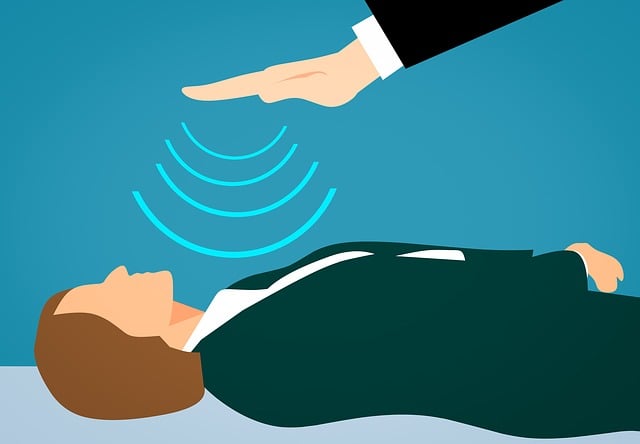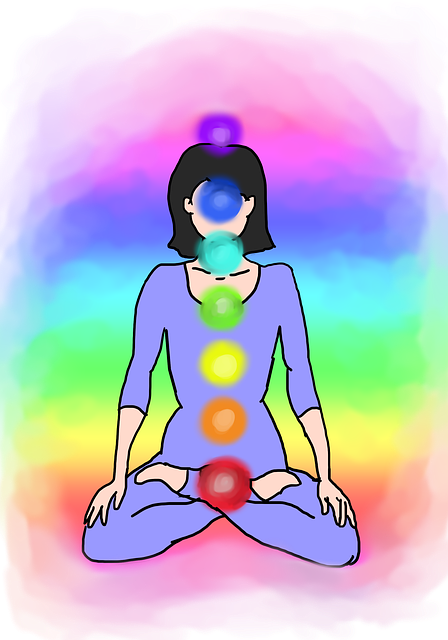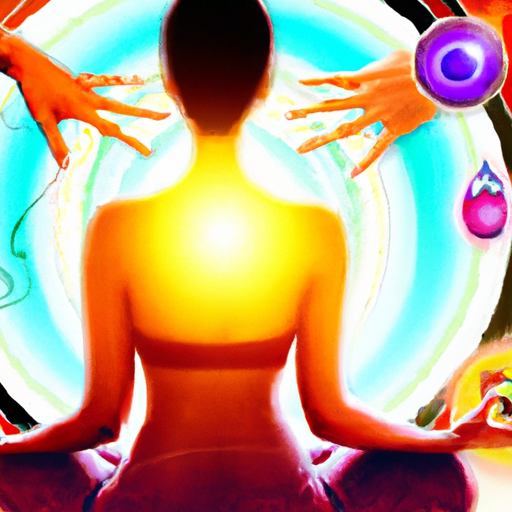
Curious to know whether there are any scientific studies on Reiki Healing and the chakra system? You’re not alone! These alternative healing practices have been gaining popularity in recent years, but many people wonder if there is any scientific evidence to support their claims. In this article, we’ll dive into the world of scientific research and explore what studies have been conducted on Reiki Healing and the chakra system. So, if you’re looking for a more scientific perspective on these topics, keep reading!
When it comes to Reiki Healing, there have been several scientific studies conducted to examine its effectiveness. Some studies have shown promising results, suggesting that Reiki Healing may have positive effects on reducing pain, anxiety, and depression, as well as improving overall well-being. However, it’s important to note that the quality of these studies varies, and more research is still needed to fully understand the mechanisms behind Reiki Healing and its potential benefits.
Similarly, when it comes to the chakra system, scientific studies exploring its existence and impact are limited. The chakra system is an ancient concept rooted in traditional Indian medicine and spirituality, which suggests that there are seven energy centers in our body that correspond to different aspects of our physical and emotional well-being. While there is growing interest in understanding the chakra system, there is currently limited scientific evidence to support its existence or its influence on our health. However, researchers continue to explore this topic, and new studies may provide further insights in the future.
So, if you’re interested in learning more about the scientific studies conducted on Reiki Healing and the chakra system, stay tuned for our upcoming article where we’ll dive deeper into the research and provide you with a more in-depth analysis. Until then, keep an open mind and remember that personal experiences and beliefs can also play a significant role in alternative healing practices.

Scientific Studies on Reiki Healing
Clinical Trials on Reiki Healing
Reiki Healing has gained popularity in recent years as a complementary therapy for various health conditions. Although many believe in its benefits, some may wonder if there is any scientific evidence to support these claims.
Clinical trials have been conducted to investigate the effects of Reiki Healing on different health outcomes. These studies involve randomizing participants into treatment and control groups, and measuring the impact of Reiki Healing on specific variables.
Recent clinical trials have shown promising results in relation to pain management, stress reduction, and overall well-being. For example, a study published in the Journal of Complementary and Integrative Medicine found that Reiki Healing significantly reduced pain and anxiety levels in patients with fibromyalgia. Another study, published in the Journal of Alternative and Complementary Medicine, demonstrated that cancer patients who received Reiki Healing experienced reduced pain, fatigue, and anxiety compared to those who did not receive the treatment.
While these studies provide encouraging evidence, it is important to note that more research is needed to fully understand the effectiveness of Reiki Healing.
Research on the Efficacy of Reiki
In addition to clinical trials, researchers have conducted observational studies to examine the efficacy of Reiki Healing. These studies involve monitoring individuals who receive Reiki sessions and assessing the changes in their physical, emotional, and mental well-being.
One such study, published in the Journal of Evidence-Based Complementary & Alternative Medicine, followed participants who received Reiki Healing sessions for a period of eight weeks. The researchers found that the participants experienced improvements in their quality of life, including reduced stress levels and increased relaxation.
Another study, published in the Journal of Alternative and Complementary Medicine, explored the effects of Reiki Healing on the autonomic nervous system. The researchers used heart rate variability as a measure of the participants’ stress response. The study showed that Reiki sessions led to a significant decrease in sympathetic nervous system activity, indicating a relaxation response.
These studies indicate that Reiki Healing may have a positive impact on various health outcomes, but further research is necessary to establish its efficacy.
Meta-analyses of Reiki Studies
Meta-analyses are systematic reviews that combine the results of multiple studies to provide a comprehensive analysis of a particular topic. Several meta-analyses have been conducted on Reiki Healing to evaluate its overall effectiveness.
A meta-analysis published in the Journal of Alternative and Complementary Medicine analyzed the results of nine randomized controlled trials on the effects of Reiki Healing. The analysis found that Reiki sessions were associated with significant improvements in pain, anxiety, and depression compared to control groups.
Another meta-analysis, published in the Journal of Evidence-Based Complementary & Alternative Medicine, looked at the effects of Reiki Healing on various health conditions, including chronic pain, cancer-related symptoms, and psychological well-being. The researchers concluded that Reiki Healing had a significant positive effect on all outcomes studied.
These meta-analyses provide substantial evidence supporting the effectiveness of Reiki Healing, but it is important to consider the limitations of the included studies and the need for further research.
Understanding the Chakra System
Introduction to Chakras
The chakra system is an ancient concept that originated in Eastern philosophies and practices. Chakras are believed to be energy centers in the body that correspond to different physical, emotional, and spiritual aspects of our being.
There are seven main chakras, each associated with a specific color and location along the spine. These chakras are believed to be interconnected and play a role in our overall well-being. When the chakras are balanced and flowing harmoniously, we experience optimal health and vitality.
Historical Background of Chakra System
The concept of chakras dates back thousands of years and can be found in ancient texts, such as the Vedas and Upanishads. In Eastern traditions, chakras are seen as vital energy centers that influence our physical, mental, and spiritual well-being.
Indian philosophical systems, such as Yoga and Ayurveda, incorporate the understanding and balancing of chakras in their practices. These systems suggest that imbalances in the chakras can lead to various physical and psychological ailments.
Chakras and Energy Flow
According to the chakra system, energy, or prana, flows through the body along specific pathways called nadis. The main nadis, known as ida, pingala, and sushumna, connect the various chakras and facilitate the movement of energy.
When the chakras are blocked or imbalanced, the flow of energy becomes disrupted, leading to physical, emotional, and spiritual distress. Practices such as Reiki Healing aim to restore the balance and flow of energy in the chakras, promoting overall well-being.
Reiki and Chakras
Reiki’s Connection to Chakras
Reiki Healing and the chakra system are closely intertwined. Reiki practitioners believe that the chakras act as gateways for energy to flow into and out of the body. By working with the chakras, Reiki practitioners aim to channel and balance the flow of energy, promoting healing and well-being.
During a Reiki session, practitioners may focus on specific chakras that are believed to be imbalanced or blocked. By directing Reiki energy towards these areas, practitioners seek to restore the flow of energy and bring the chakras back into alignment.
How Reiki Balances Chakras
Reiki practitioners use various techniques to balance the chakras during a session. These techniques may include placing hands directly on or near the chakra points, as well as using specific hand positions to direct the flow of energy.
By directing Reiki energy towards the chakras, practitioners aim to clear any blockages or imbalances, allowing the energy to flow freely. This can help to restore physical, emotional, and spiritual well-being.
Benefits of Reiki on Chakra Health
Reiki Healing, when applied to the chakras, can have numerous benefits. By balancing the chakras and restoring the flow of energy, individuals may experience improved physical health, reduced stress, and enhanced emotional well-being.
Some specific benefits of Reiki on chakra health include increased vitality, improved focus and clarity, and enhanced spiritual connection. Many people report feeling more grounded, centered, and balanced after receiving a Reiki session.
While the scientific research on the direct effects of Reiki on chakras is limited, anecdotal evidence and personal experiences suggest that Reiki Healing can have a positive impact on chakra health.
Controversies and Criticisms
Skepticism Towards Reiki Healing
Despite the growing interest in Reiki Healing, there are skeptics who question its effectiveness. Some skeptics argue that Reiki is based on unfounded beliefs and lacks scientific evidence to support its claims.
Critics often point to the lack of rigorous scientific studies and the subjective nature of Reiki experiences. They argue that any perceived benefits of Reiki Healing may be attributed to placebo effects or the natural healing processes of the body.
Debates on the Existence of Chakras
Similarly, the concept of chakras has faced criticism and skepticism. Skeptics argue that chakras are a purely metaphysical concept with no scientific basis. They question the existence of energy centers in the body and suggest that the chakra system is merely a metaphorical or symbolic representation of human experience.
While the existence of chakras cannot be proven or disproven by current scientific methods, many individuals and practitioners continue to believe in their significance and utilize practices such as Reiki Healing to work with them.
Critiques of Reiki Studies
Critics of Reiki Studies often point to methodological flaws and limitations in existing research. Some argue that the small sample sizes, lack of control groups, and subjective outcome measures undermine the validity and reliability of the findings.
Additionally, skeptics question the double-blind procedures in Reiki studies, as the nature of Reiki Healing involves direct physical contact and the transfer of energy. It is challenging to implement blinding procedures that adequately control for these factors.
While these criticisms and controversies exist, it is important to approach the topic with an open mind and consider a diversity of perspectives.

Limitations and Challenges in Reiki Research
Methodological Issues in Reiki Studies
One of the limitations of Reiki research is the lack of standardized protocols and practices. Each Reiki practitioner may approach their sessions differently, making it challenging to compare and replicate studies.
Additionally, the subjective nature of Reiki experiences poses a challenge in measuring and quantifying outcomes. Reiki Healing often involves personal and individualized experiences, making it difficult to apply traditional scientific methods to capture the full scope of its effects.
Placebo Effects and Blinding in Reiki Trials
Another challenge in Reiki research is controlling for placebo effects. The act of receiving care and attention from a Reiki practitioner can elicit a placebo response, leading to perceived benefits even without the specific effects of Reiki Healing.
Blinding procedures can also be challenging to implement in Reiki trials. Given that Reiki sessions involve direct physical contact and energy transfer, it is difficult to create sham Reiki sessions that fully mimic the experience of genuine Reiki Healing.
Tracking and Measuring Reiki Energy
The concept of Reiki energy is not yet fully understood or measurable by conventional scientific methods. The challenge lies in defining and quantifying Reiki energy in a way that can be objectively measured and compared across different studies.
Some researchers have attempted to use biofield imaging and other technologies to capture the effects of Reiki energy on the body. However, more research is needed to develop reliable and valid methods for tracking and measuring Reiki energy.
Current State of Scientific Evidence
Evaluation of Published Reiki Studies
While the scientific evidence on Reiki Healing and the chakra system is still emerging, several published studies offer valuable insights and preliminary evidence.
Clinical trials, observational studies, and meta-analyses have provided evidence of the potential benefits of Reiki Healing, including pain reduction, stress management, and improved well-being. However, limitations in study design and methodology should be taken into consideration when interpreting these findings.
Consensus among Scientific Community
The scientific community’s consensus on Reiki Healing and the chakra system remains divided. While some researchers and healthcare professionals acknowledge the potential benefits of Reiki and its alignment with holistic approaches to health, others remain skeptical due to the lack of robust scientific evidence.
Further research, conducted with rigorous methodology and standardized protocols, is necessary to bridge this gap and establish a more cohesive understanding of Reiki Healing and its effects on the chakra system.
Areas for Future Research
Future research should focus on addressing the limitations and challenges in Reiki studies. This includes developing standardized protocols, implementing rigorous study designs, and exploring innovative methods for tracking and measuring Reiki energy.
Additionally, comparative studies, investigating the effectiveness of Reiki Healing when compared to other interventions or placebo treatments, would contribute to our understanding of its specific effects.
It is through continued research and open dialogue that a deeper understanding of Reiki Healing and the chakra system can be achieved.

Alternative Perspectives on Reiki and Chakras
Spiritual and Holistic Views on Reiki
Reiki Healing is often viewed within a spiritual and holistic framework. Many practitioners and individuals believe that Reiki taps into a universal life force energy, connecting the physical, mental, emotional, and spiritual aspects of human existence.
From this perspective, Reiki is seen as a tool for personal growth, self-discovery, and spiritual development. It is not solely about physical healing but encompasses a broader sense of well-being and wholeness.
Ancient Eastern Philosophies and Chakra Beliefs
The concept of chakras originates from ancient Eastern philosophies and spiritual traditions. In these traditions, chakras are viewed as vital energy centers that contribute to our overall well-being and spiritual evolution.
Ancient practices such as Yoga, meditation, and Ayurveda incorporate the understanding and balancing of chakras as integral components of their teachings. These practices aim to harmonize the flow of energy in the body, promoting physical health, mental clarity, and spiritual connection.
Integration of Reiki into Complementary Therapies
Reiki Healing is often used in combination with other complementary therapies to facilitate a holistic approach to healing. Many healthcare professionals and practitioners recognize the potential benefits of integrating Reiki into conventional medical treatments.
Reiki is increasingly being offered in healthcare settings, such as hospitals and clinics, to support patients’ well-being and promote a sense of calm and relaxation. The integration of Reiki into complementary therapies provides individuals with a wide range of options to address their health concerns.
Personal Experiences and Testimonials
Individual Accounts of Reiki Healing
Many individuals who have experienced Reiki Healing report positive outcomes and benefits. These personal accounts often describe feelings of deep relaxation, reduced stress, and improved overall well-being.
Individuals may also report specific improvements in physical symptoms, such as pain reduction or increased energy levels. While personal experiences cannot be considered scientific evidence, they contribute to the growing body of anecdotal support for the efficacy of Reiki Healing.
Patient Perspectives on Chakra Balancing
Patients who receive Reiki sessions targeting the chakras often describe a sense of balance, harmony, and increased self-awareness. They may report feeling more connected to their own emotions, thoughts, and spiritual essence.
Patients may also notice improvements in physical symptoms related to specific chakras. For example, individuals with throat chakra imbalances may experience improved communication skills or reduced throat-related ailments after receiving Reiki sessions.
Qualitative Research on Reiki Experiences
Qualitative research methods, such as interviews and surveys, have been used to explore individuals’ experiences with Reiki Healing and chakra balancing. These studies provide valuable insights into the subjective aspects of Reiki and its effects on individuals’ physical, emotional, and spiritual well-being.
Qualitative research allows individuals to share their unique experiences and provides a more nuanced understanding of the potential benefits and limitations of Reiki Healing.

Applying Reiki and Chakra Practices
Training and Certification in Reiki
Reiki Healing is typically taught through a series of attunements and training sessions. These training programs vary in length and intensity, but they generally cover the principles of Reiki, hand positions, and techniques for channeling energy.
Certification programs exist for individuals who wish to become Reiki practitioners. These programs provide a structured curriculum and often require practical demonstrations and supervised practice.
Practical Techniques for Chakra Alignment
Practical techniques for chakra alignment can be learned and applied by individuals for self-healing and personal growth. These techniques may involve visualization exercises, meditation, breathing techniques, and energy healing practices.
Exploring and incorporating these techniques into daily life can help individuals maintain balance in their chakras and promote overall well-being.
Reiki and Chakra Healing in Healthcare Settings
Reiki and chakra healing are increasingly being offered in healthcare settings alongside conventional medical treatments. Many hospitals, clinics, and wellness centers recognize the potential benefits of these complementary therapies in supporting patients’ overall wellness and recovery.
Through collaboration between healthcare professionals and Reiki practitioners, individuals can access a broader range of healing modalities and approaches. This integration provides a more holistic approach to healing, addressing both the physical and energetic aspects of health.
Conclusion
Summary of Scientific Findings
Scientific studies on Reiki Healing and the chakra system demonstrate promising results in terms of pain reduction, stress management, and improved well-being. Clinical trials, observational studies, and meta-analyses have provided evidence of the potential benefits of Reiki Healing, although further research is needed to confirm these findings.
It is important to acknowledge the limitations and challenges in Reiki research, such as methodological issues, placebo effects, and difficulties in measuring Reiki energy. Skepticism and debates exist within the scientific community regarding the effectiveness of Reiki Healing and the existence of chakras.
Importance of Further Investigation
Given the growing interest in Reiki Healing and the chakra system, further investigation is crucial. Standardized protocols, rigorous study designs, and innovative research methods are needed to advance our understanding of Reiki Healing and its effects on the chakra system.
Comparative studies, exploring the effectiveness of Reiki Healing compared to other interventions, would contribute to our understanding of its specific effects. Additionally, qualitative research can provide valuable insights into individuals’ experiences with Reiki Healing and chakra balancing.
Embracing Multidimensional Approaches to Healing
As the field of holistic and integrative medicine continues to evolve, it is essential to embrace multidimensional approaches to healing. Reiki Healing and the chakra system offer unique perspectives and practices that can complement conventional medical treatments and support individuals’ overall well-being.
By incorporating Reiki and chakra practices into healthcare settings, individuals have access to a broader range of healing modalities. This integration promotes a holistic approach to healing, taking into account the physical, mental, emotional, and spiritual aspects of health.
In conclusion, while scientific studies on Reiki Healing and the chakra system are still emerging, the existing evidence and personal experiences provide a foundation for further investigation. By embracing multidimensional approaches to healing and fostering open dialogue, we can advance our understanding and application of Reiki Healing and its potential benefits.









